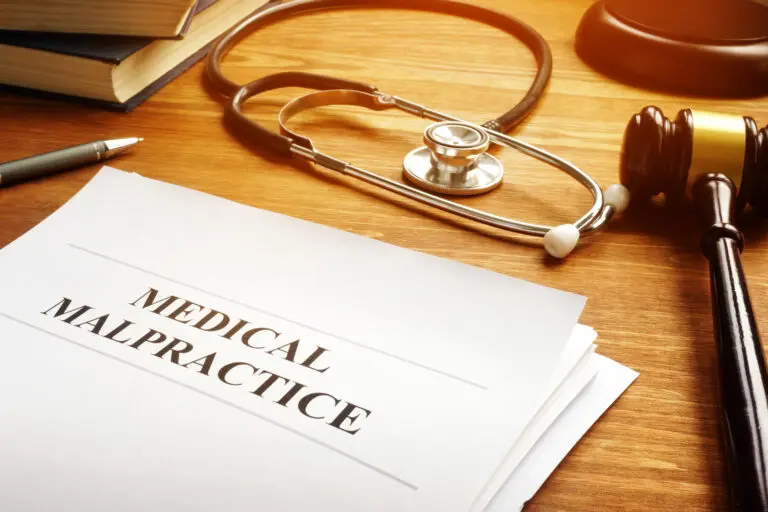The Racketeer Influenced and Corrupt Organizations Act, commonly known as RICO, has become a powerful tool for prosecutors in combating organized crime and complex criminal enterprises. Originally enacted in 1970 to target mafia operations, RICO has since expanded to encompass a wide range of illegal activities, from white-collar crimes to gang-related offenses. For individuals facing racketeering charges, understanding the intricacies of RICO and developing a robust defense strategy is crucial.
At its core, RICO aims to penalize those who participate in or benefit from an ongoing criminal enterprise. The act allows prosecutors to tie together seemingly disparate criminal acts into a cohesive pattern of racketeering activity, potentially leading to severe consequences for convicted defendants. RICO violations can result in lengthy prison sentences, substantial fines, and the forfeiture of assets obtained through illegal means.
To secure a conviction under RICO, prosecutors must prove several key elements. First, they must establish the existence of an enterprise, which can be a formal legal entity or a group of individuals associated in fact. Second, they must demonstrate a pattern of racketeering activity, typically involving at least two predicate crimes committed within a ten-year period. Finally, they must show that the defendant participated in the affairs of the enterprise through this pattern of racketeering activity.
Defending against RICO charges requires a comprehensive understanding of both the law and the specific allegations at hand. Abogados penalistas specializing in RICO cases often employ a multifaceted approach, challenging the prosecution’s evidence, questioning the existence of a true enterprise, and disputing the alleged pattern of racketeering activity.
One common defense strategy involves attacking the prosecution’s assertion that a pattern of racketeering activity exists. Defense lawyers may argue that the alleged predicate crimes are isolated incidents rather than part of a coordinated criminal enterprise. They may also challenge the credibility of witnesses, particularly if the prosecution relies heavily on testimony from co-conspirators or informants.
Another crucial aspect of RICO defense is scrutinizing the alleged enterprise itself. Attorneys may argue that the purported organization lacks the necessary structure or continuity to qualify as an enterprise under the law. This can be particularly effective in cases where the alleged enterprise is loosely defined or where the defendant’s connection to it is tenuous.
White-collar crime cases involving RICO charges often present unique challenges. These cases frequently involve complex financial transactions, voluminous documentation, and intricate business structures. Defending against such charges may require the assistance of forensic accountants, financial experts, and other specialists who can help unravel the complexities of the alleged criminal activity.
In cases involving allegations of securities fraud or other financial crimes, defense attorneys may focus on demonstrating that their client’s actions were legitimate business practices rather than part of a criminal scheme. This can involve presenting evidence of industry standards, expert testimony, and documentation showing the defendant’s compliance with relevant regulations.
For cases involving allegations of crimen organizado, defense strategies may center on challenging the prosecution’s portrayal of the defendant’s role within the alleged criminal enterprise. Attorneys may argue that their client was merely a peripheral figure or was unaware of the full scope of the organization’s activities.
One of the most powerful tools in a RICO defense is challenging the admissibility of evidence. Given the broad scope of RICO investigations, prosecutors often rely on a wide range of evidence gathered over an extended period. Defense attorneys may file motions to suppress evidence obtained through illegal searches, wiretaps, or other questionable means.
The complexity of RICO cases often leads to lengthy trials, sometimes lasting months or even years. This extended timeline can work to the defendant’s advantage, as it provides ample opportunity to scrutinize the prosecution’s case and identify weaknesses. However, it also requires a significant commitment of time and resources from the defense team.
In some cases, defendants facing RICO charges may consider cooperating with prosecutors in exchange for leniency. This decision requires careful consideration of the potential benefits and risks, as well as a thorough understanding of the strength of the prosecution’s case. Experienced defense attorneys can provide crucial guidance in navigating these negotiations.
The global nature of many modern criminal enterprises has led to an increase in international RICO cases. These cases present additional challenges, including jurisdictional issues, extradition proceedings, and the need to navigate multiple legal systems. Defense attorneys handling such cases must be well-versed in international law and have a network of global resources at their disposal.
One emerging area of RICO litigation involves ciberdelincuencia y digital racketeering. As criminal enterprises increasingly operate in the digital realm, prosecutors have begun applying RICO statutes to cases involving hacking, online fraud, and other technology-driven offenses. Defending against these charges requires a deep understanding of both RICO law and the technical aspects of cybercrime.
The use of RICO in litigios civiles has also expanded in recent years. While originally conceived as a criminal statute, RICO allows for civil lawsuits by private parties who have been harmed by racketeering activity. This has led to an increase in complex civil RICO cases, particularly in the business world. Defending against civil RICO claims often involves strategies similar to those used in criminal cases, with the added complexity of potential financial liability.
One of the most challenging aspects of RICO defense is addressing the statute’s broad definition of racketeering activity. The law encompasses a wide range of predicate offenses, from traditional organized crime activities like extortion and illegal gambling to white-collar crimes such as mail fraud and money laundering. This breadth allows prosecutors to cast a wide net, potentially implicating individuals in a RICO case based on seemingly unrelated criminal acts.
Defendants facing RICO charges must be prepared for the possibility of asset forfeiture. RICO’s forfeiture provisions are particularly severe, allowing the government to seize not only assets directly tied to criminal activity but also property indirectly derived from or used to facilitate racketeering. Developing strategies to protect assets from forfeiture is often a crucial component of RICO defense.
El uso de conspiracy charges in RICO cases adds another layer of complexity to the defense strategy. Prosecutors may allege that a defendant conspired to violate RICO even if they did not personally commit any predicate offenses. Defending against conspiracy charges often involves challenging the prosecution’s evidence of agreement and intent, as well as arguing that the defendant withdrew from any alleged conspiracy.
In recent years, there has been increased scrutiny of the use of RICO in prosecuting street gangs and other loosely organized criminal groups. Defense attorneys have argued that applying RICO to such cases stretches the statute beyond its intended purpose and can lead to overly harsh penalties for low-level offenders. Successfully defending against these charges often involves challenging the prosecution’s characterization of the alleged gang as a RICO enterprise.
The intersection of RICO and political corruption cases has also garnered attention. Prosecutors have used RICO to target corrupt public officials and their associates, alleging that government offices or political organizations constitute racketeering enterprises. Defending against such charges requires a nuanced understanding of both RICO law and the intricacies of political and governmental operations.
One emerging defense strategy in RICO cases involves challenging the constitutionality of the statute itself. Some legal scholars and defense attorneys argue that RICO’s broad reach and severe penalties violate due process and other constitutional protections. While these challenges have generally been unsuccessful to date, they represent an ongoing area of legal debate and potential future defense avenues.
El uso de data analytics y artificial intelligence in RICO investigations has become increasingly prevalent. Prosecutors now have access to sophisticated tools for analyzing vast amounts of financial data, communications records, and other digital evidence. Defending against cases built on such technology-driven investigations requires defense teams to develop their own technological capabilities and to carefully scrutinize the reliability and admissibility of evidence derived from these methods.
In cases involving allegations of blanqueo de dinero, a common predicate offense in RICO prosecutions, defense strategies often focus on challenging the prosecution’s tracing of funds. Attorneys may argue that the alleged illicit funds were actually derived from legitimate sources or that their client was unaware of the funds’ origins. This defense can be particularly effective in cases involving complex international financial transactions.
El papel de cooperating witnesses in RICO cases cannot be overstated. Prosecutors often rely heavily on testimony from former members of the alleged criminal enterprise who have agreed to cooperate in exchange for leniency. Defending against such testimony involves thorough investigation of the cooperating witness’s background, motivations, and potential biases. Skilled cross-examination of these witnesses can be crucial in undermining the prosecution’s case.
One of the most challenging aspects of RICO defense is addressing the statute’s extraterritorial reach. RICO can be applied to criminal activities that occur outside the United States, provided there is a sufficient nexus to the U.S. Defending against such charges often involves complex jurisdictional arguments and challenges to the admissibility of evidence obtained overseas.
El uso de RICO in civil cases has led to an increase in litigation against businesses and corporations. These cases often allege that legitimate businesses have engaged in patterns of fraud or other illegal activities constituting a RICO enterprise. Defending against civil RICO claims requires a deep understanding of both criminal RICO law and civil litigation strategies.
In recent years, there has been growing concern about the potential for prosecutorial overreach in RICO cases. Critics argue that the broad nature of the statute allows prosecutors to bring charges in cases that fall outside the original intent of the law. Developing defense strategies that highlight this overreach and argue for a more limited interpretation of RICO can be effective in some cases.
The intersection of RICO and environmental crimes has become an emerging area of prosecution. Allegations of systematic environmental violations, such as illegal dumping or emissions fraud, have been framed as RICO enterprises. Defending against these charges often requires a combination of environmental law expertise and traditional RICO defense strategies.
One of the most complex aspects of RICO defense is addressing cases involving multiple defendants. These cases often involve intricate webs of alleged criminal activity, with varying levels of involvement among the defendants. Developing a cohesive defense strategy while also protecting individual clients’ interests can be a delicate balancing act for defense teams.
El uso de social media evidence in RICO prosecutions has become increasingly common. Prosecutors may use posts, messages, and other online content to establish connections between defendants or demonstrate knowledge of criminal activities. Defending against such evidence often involves challenging its authenticity, context, and relevance to the alleged RICO enterprise.
In cases involving allegations of healthcare fraud, a growing area of RICO prosecution, defense strategies often focus on the complexity of medical billing and regulatory compliance. Attorneys may argue that alleged fraudulent practices were actually the result of honest mistakes or misinterpretations of complex healthcare regulations.
The intersection of RICO and intellectual property crimes has led to an increase in prosecutions targeting counterfeit goods operations and copyright infringement schemes. Defending against these charges often involves challenging the valuation of the alleged infringed property and arguing that the activities do not constitute a pattern of racketeering.
One emerging area of RICO defense involves challenging the use of predictive policing and other data-driven law enforcement techniques in identifying potential RICO enterprises. Defense attorneys may argue that these methods lead to biased enforcement and violate constitutional protections against unreasonable searches and seizures.
The complexity of RICO cases often necessitates the use of expert witnesses in areas such as forensic accounting, data analysis, and industry-specific practices. Selecting and preparing effective expert witnesses can be crucial in countering the prosecution’s narrative and providing alternative explanations for alleged criminal activities.
Defending against RICO charges in cases involving cryptocurrency and other digital assets presents unique challenges. The anonymity and complexity of these transactions can make it difficult to trace the flow of funds and establish the existence of a criminal enterprise. Defense strategies in these cases often involve educating the court on the technical aspects of cryptocurrency and challenging the prosecution’s understanding of these complex financial systems.
El uso de RICO in labor racketeering cases continues to be a significant area of prosecution. Allegations of union corruption, embezzlement of pension funds, and other labor-related crimes may be framed as RICO violations. Defending against these charges often involves navigating complex labor laws and regulations in addition to traditional RICO defense strategies.
One of the most challenging aspects of RICO defense is addressing cases that span multiple jurisdictions. These cases may involve alleged criminal activities across several states or even countries, complicating issues of venue and evidence gathering. Developing a coordinated defense strategy that addresses each jurisdiction’s specific laws and procedures is crucial in these complex cases.
The intersection of RICO and human trafficking prosecutions has led to an increase in cases targeting large-scale trafficking operations. Defending against these charges often involves challenging the prosecution’s characterization of the alleged enterprise and arguing that individual defendants were unaware of the full scope of the operation.
In conclusion, defending against RICO charges requires a multifaceted approach that addresses the complex legal, factual, and strategic challenges presented by these cases. From challenging the existence of an enterprise to scrutinizing evidence of predicate offenses, defense attorneys must be prepared to navigate the intricate web of RICO law. As the use of RICO continues to expand into new areas of prosecution, staying abreast of legal developments and emerging defense strategies is crucial for anyone facing these serious charges.
Website citations:
- https://www.justice.gov/archives/jm/criminal-resource-manual-109-rico-charges
- https://www.law.cornell.edu/wex/racketeering
- https://www.fbi.gov/investigate/organized-crime
- https://www.findlaw.com/criminal/criminal-charges/racketeering-rico.html
- https://www.hg.org/legal-articles/understanding-rico-the-racketeer-influenced-and-corrupt-organizations-act-31701
- https://www.nolo.com/legal-encyclopedia/content/rico-act.html
Citations:
https://www.cnn.com/2023/08/15/politics/rico-explainer-georgia-trump-indictment/index.html
https://rhlawfl.com/white-collar-crime/what-is-covered-by-the-racketeer-influenced-and-corrupt-organizations-rico-act/
https://www.patitucelaw.com/blog/2024/april/understanding-rico-charges-and-defenses-in-feder/
https://grishamandpoole.com/blog/rico-charges-what-is-rico/
https://scholarship.law.uc.edu/fac_pubs/77/
https://www.lawinfo.com/resources/criminal-defense/racketeering/defending-against-racketeering-charges.html
https://cbs12.com/news/local/11-suspected-gang-members-arrested-under-rico-law-conspiracy-racketeering-broadmoor-gang-riviera-beach-west-palm-beach-april-24-2024
https://www.josephabramslaw.com/surviving-federal-rico-charges/









